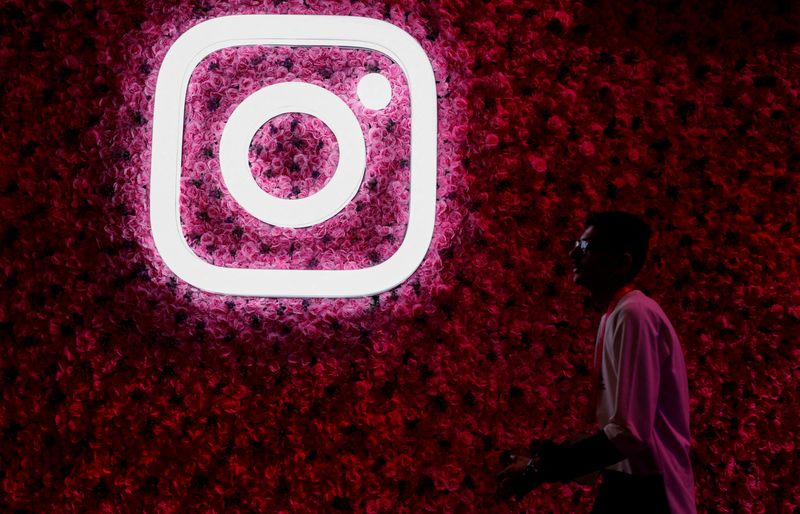By Nate Raymond
BOSTON (Reuters) – Meta Platforms faces a lawsuit from Massachusetts alleging the social media company deliberately deployed features on its Instagram platform to addict young users and misled the public about the dangers posed this has implications for the mental health of teenagers, a judge ruled.
Judge Peter Krupp of the Superior Court of Suffolk County in Boston, in a decision made public Friday, rejected Meta’s request to dismiss Massachusetts Attorney General Andrea Joy Campbell’s claims that it had violated state consumer protection law and had caused public nuisance.
The operator of Facebook (NASDAQ:) and Instagram argued that the state’s case was barred by Section 230 of the Communications Decency Act of 1996, a federal law that largely shields internet companies from lawsuits over content posted by users.
Krupp said the law does not apply to false statements Meta allegedly made about Instagram’s safety, its efforts to protect the well-being of young users or its age verification systems to ensure people under 13 stay off the platform .
He said allegations about the negative impact of Instagram’s design features were also not ruled out because the state “primarily wanted to hold Meta liable for its own business conduct,” and not for content posted by third parties.
Campbell, a Democrat, said in a statement that as a result of the judge’s ruling, “we can now move forward with our claims to hold Meta accountable and continue to push for meaningful changes to Meta’s platforms that will protect young users.”
A spokesperson for Meta said the company disagreed with the ruling and that the “evidence will demonstrate our commitment to supporting young people.”
The ruling came after a federal judge in California on Tuesday rejected a request from Meta to dismiss lawsuits from more than 30 states accusing them of fueling mental health problems among teens by making their social media platforms addictive.
Massachusetts was one of the few states to file separate claims in state court, rather than federal, when it filed suit in October 2023.
It became one of the highest-profile lawsuits over allegations first aired about how CEO Mark Zuckerberg had dismissed concerns that aspects of Instagram could have a harmful effect on its users.

The lawsuit alleged that Instagram features such as push notifications, “likes” of user posts, and an endless scroll were designed to take advantage of teens’ psychological vulnerabilities and their “fear of missing out.”
The state claimed internal data showed the platform was addictive and harmed children, but top executives rejected changes that research showed would improve teens’ well-being.


